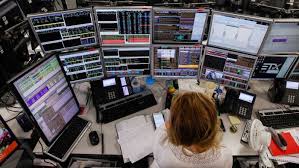Myth and Reality: Understanding the Hedge Fund Industry in One Article (2)

How the myth is made
People in the financial world pay tribute to the super heroes of investing. Some of these superheroes deserve their name: Soros shorted the pound and almost bankrupted the Bank of England. As Soros' reputation grew, so did his influence as an investor. Tiger Management by Julian Robertson is another legend, and no one wants to bet otherwise. Their investment portfolio of $ 1 or $ 2 billion at this time looks like the big bad “Doctor Devil” in the movie “Ace of Powers” won't destroy the world for just $ 1 million. Xiaoli is incredibly stingy. But Soros' daring move greatly inspired his supporters. Of course, the more people who want to replicate Soros' legendary experience, the smaller the chances of success. JohnH Makin is a director of Kovner’s Caxton Associates. In his view, “The 1980s and early 1990s were the heyday of hedge funds. The extraordinary returns weren't unbelievably high back then. Ordinary people cannot reach it. "
The public has always misunderstood that all hedge funds operate the same, but they don't.
One extreme is a bunch of nerds: The medics no longer just hide in the ivory tower to see the scenery, but want to get more out of real life, like money. They use precise software to drive investment strategies, and this software is continually being improved by “rocket scientists”. These types are called “quantitative investors” (quants, abbreviation of quantitative investor). Currently, the "king" among them is James Simons of Renaissance Technology, based in Long Island. He is essentially a scholar, and his research report is said to contain new findings in the capital market.
At the other extreme, there are activists who knock at the table and look and despise the powerful. Representing them are Daniel Loeb of Third Point, and Tom Hudson of Pirate Capital, whose name is very creative. The strategies they use are the ones that get the most media attention, which to some extent determines the public perception of hedge funds, despite the fact that hedge funds are based more on the mind than on the mind. muscles. Either way, the most exciting drama comes from open combat. Much like Loeb fire at home appliance maker Salton Inc. Loeb claimed to have seen the CEO of the company sipping frozen Gewürztraminer (Gewürztraminer, a white grape and white wine made from that grape,mainly made in Alsace, France and Germany) at US Tennis Open, the company pays.
In everyone's imagination, a hedge fund trader should be sitting next to a high-tech console that appears to be finishing an expedition to Mars, busy buying and selling all day. There must be someone like that, and Steve Cohen of SAC Capital is one of them. But in fact, the offices of most investment firms are much quieter. A typical long / short hedge fund may do nothing in the days or even weeks after opening the position, just wait and see the developments. Maybe one afternoon, they suddenly got a whim and invited a bookish professor to come and sell his mysterious financial theory. To be honest, being a hedge fund is a very boring thing.
Simple psychological analysis
According to a survey by Russ Alan Prince, author of Fortune's Fortress, of 294 fund managers with personal control of over $ 30 million in capital, the results show that 97% of fund managers view their portfolio as theirs. Incarnation. The problem they often think of is "failure". 54% of them claimed to have “Icarus syndrome” (Icarus syndrome, the son of Daedalus, the inventor of Athens who built the labyrinth of Minos in Greek mythology. To escape the labyrinth, Daedalus Put wings on himself and on his son Icarus. During the flight, Icarus flew too close to the sun. As a result, his wings melted and fell into the sea and died.) He was always worried that flying too much near the sun would one day fall. . They also think of swords and shadows, as nearly three-quarters of fund managers believe their wealth is enough to make them a target for criminals. Is this the life we're talking about?



